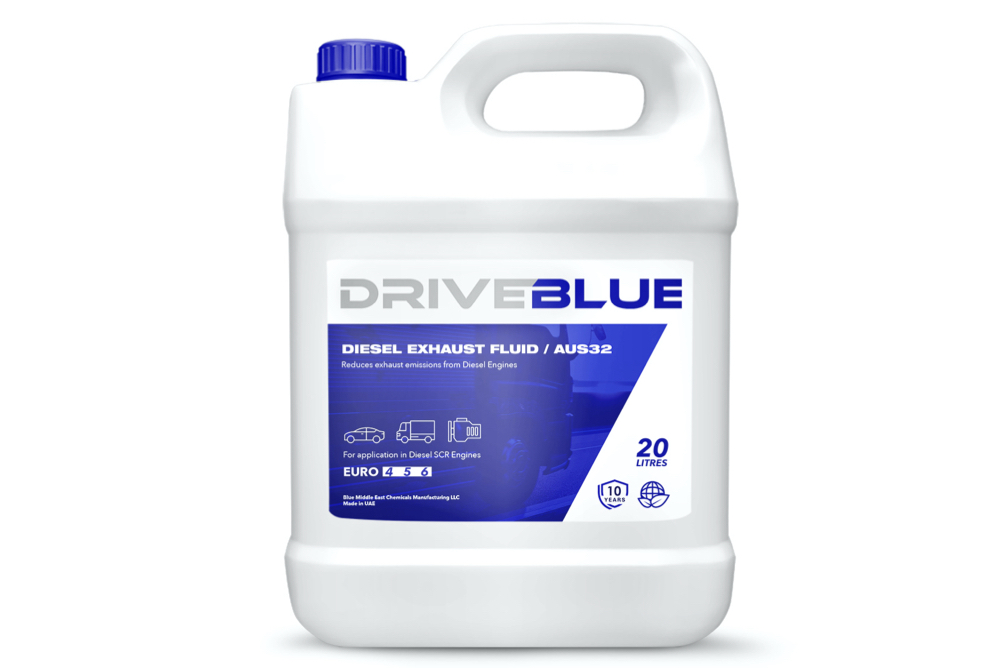A vital part of contemporary diesel engines, diesel exhaust fluid (DEF) helps to meet strict environmental regulations by lowering hazardous emissions. Comprehending the functioning of DEF can aid car owners in realizing its significance in preserving engine efficiency and mitigating emissions. What DEF is, how it works, and why diesel engine technology depends on it will all be covered in this guide.
What is Diesel Exhaust Fluid?
Composition of DEF
Diesel Exhaust Fluid is a non-toxic, colorless, and odorless liquid made up of 32.5% high-purity urea and 67.5% deionized water. This specific concentration is critical for its effectiveness in reducing emissions.
Purpose of DEF
The main purpose of DEF is to lower the levels of nitrogen oxides (NOx) emitted from diesel engines. NOx is a significant pollutant that contributes to smog and acid rain, posing serious environmental and health risks.
Note:- High-quality Aqua Blue Diesel Exhaust Fluid that not only meets but beyond industry requirements is something Blue Middle East takes great satisfaction in supplying. Pushing the limits of performance and dependability in engine coolant solutions is something the company constantly aims to do, with an emphasis on innovation and quality.
The Role of DEF in Emission Control
Selective Catalytic Reduction (SCR) System
How SCR Works: DEF is used in a technology called Selective Catalytic Reduction (SCR). SCR is an advanced emissions control system that injects DEF into the exhaust stream of diesel engines. This process helps to convert NOx into harmless nitrogen and water vapor before they are released into the atmosphere.
The Chemical Reaction
Hydrolysis and Decomposition: When DEF is injected into the hot exhaust gases, it undergoes hydrolysis, breaking down into ammonia (NH3) and carbon dioxide (CO2).
Reduction Reaction: The ammonia then reacts with the NOx gases in the presence of a catalyst within the SCR system. This reaction converts the NOx into nitrogen (N2) and water (H2O), both of which are harmless and naturally occurring in the environment.
Importance of DEF in Diesel Engines

Aqua Blue Diesel Exhaust Fluid
Environmental Benefits
Reduction of Harmful Emissions: By converting NOx into harmless substances, DEF significantly reduces the amount of harmful emissions from diesel engines, helping to improve air quality and reduce environmental impact.
Compliance with Regulations
Meeting Emission Standards: Many countries have strict emission regulations that diesel engines must comply with. Using DEF in SCR systems allows vehicles to meet these standards, avoiding legal penalties and contributing to a cleaner environment.
How to Use Diesel Exhaust Fluid
Refilling DEF
DEF Tank: Most diesel vehicles equipped with SCR systems have a separate DEF tank. It is important to monitor the DEF levels and refill the tank as needed to ensure continuous operation of the SCR system.
Frequency: The frequency of refilling DEF depends on the vehicle’s usage and DEF consumption rate. Typically, a DEF tank lasts for several thousand miles, but it is essential to check the levels regularly.
Storage and Handling
Proper Storage: DEF should be stored in a cool, dry place away from direct sunlight to maintain its effectiveness. Extreme temperatures can degrade the quality of DEF, reducing its efficiency.
Handling: When refilling the DEF tank, it is important to avoid contamination. Use clean containers and equipment to prevent impurities from entering the system, which can cause damage to the SCR components.
Potential Issues and Solutions
Crystallization
Formation of Crystals: If DEF is exposed to air or extreme temperatures, it can crystallize, potentially clogging the SCR system. To avoid this, ensure proper storage and handling of DEF.
Prevention: Regular maintenance and inspections can help detect and prevent crystallization issues. Using high-quality DEF can also minimize the risk of crystallization.
Running Out of DEF
Impact on Engine Performance: Running out of DEF can cause the SCR system to stop working, leading to increased NOx emissions. In many vehicles, the engine power is reduced to encourage the driver to refill the DEF tank.
Monitoring Levels: Regularly check DEF levels and keep an eye on dashboard warnings to ensure you never run out of DEF. Keeping an extra bottle of DEF in your vehicle can be helpful in emergencies.
Choosing the Right DEF
Quality Standards
Certified DEF: Always use DEF that meets the ISO 22241 standard, ensuring it is of high quality and free from impurities. Certified DEF provides reliable performance and protects the SCR system from damage.
Purchasing DEF
Trusted Suppliers: Purchase DEF from reputable suppliers to ensure you are getting a quality product. Avoid buying DEF from unknown or unverified sources, as it may contain contaminants that can harm your vehicle.
Conclusion
Diesel Exhaust Fluid is a vital component in reducing harmful emissions from diesel engines and meeting environmental regulations. By understanding how DEF works and the importance of proper usage and maintenance, vehicle owners can ensure their engines run efficiently and sustainably. Regular monitoring and handling of DEF, along with choosing high-quality products, will help maintain the performance of the SCR system and contribute to a cleaner environment.
Note:- To read more articles visit on writingguest.



